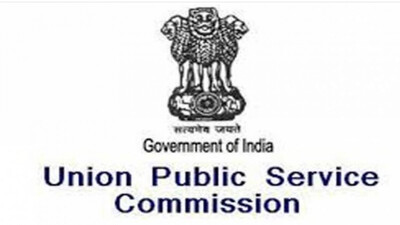Some banks called the Moody`s move backward looking, arbitrary and unwarranted. "All of the banks affected by today`s actions have significant exposure to the volatility and risk of outsized losses inherent to capital markets activities," said Greg Bauer, Moody`s global banking managing director on Thursday.
However, they also engage in other, often market leading business activities that are central to Moody`s assessment of their credit profiles, he said. "These activities can provide important `shock absorbers` that mitigate the potential volatility of capital markets operations, but they also present unique risks and challenges," Bauer added.
According to the Wall Street Journal, the move hit five of the six biggest US banks by assets, including Morgan Stanley, which had mounted a campaign to persuade Moody`s not to cut its rating by three notches. It was downgraded instead by two. The other banks are Bank of America, Goldman Sachs, JPMorgan, Morgan Stanley, Citigroup and Deutsche Bank.
Moody`s said rating actions conclude the review initiated on 15 February 2012 when it announced a ratings review prompted by its reassessment of the volatility and risks that creditors of firms with global capital markets operations face.
In the past, these risks have led many institutions to fail or to require outside support, including several firms affected by today`s rating actions, it said.
In a statement Moody`s said the first group of firms includes HSBC, Royal Bank of Canada and JPMorgan. Capital markets operations (and the associated risks) are significant for these firms.
However, Moody`s added that these institutions have stronger buffers, or `shock absorbers,` than many of their peers in the form of earnings from other, generally more stable businesses. This, combined with their risk management through the financial crisis, has resulted in lower earnings volatility.
Capital and structural liquidity are sound for this group, and their direct exposure to stressed European sovereigns and financial institutions is contained.
Firms in this group now have standalone credit assessments of a3 or better (on a scale from aaa, highest, to c, lowest). Their main operating companies now have deposit ratings of Aa3, and their holding companies, where they exist, have senior debt ratings between Aa3 and A2. Their short-term ratings are Prime-1 at both the operating and holding company level.
The second group of firms includes Barclays, BNP Paribas, Credit Agricole SA (CASA), Credit Suisse, Deutsche Bank, Goldman Sachs, Societe Generale and UBS.
Many of these firms rely on capital markets revenues to meet shareholder expectations, the global ratings agency said, adding that their relative position reflects a combination of differentiating and sometimes adverse factors.
Capital markets operations constitute a large part of the overall franchises for Credit Suisse, Goldman Sachs, Barclays, and Deutsche Bank, but less so for UBS, Societe Generale, BNP Paribas and CASA`s cooperative group, Groupe Credit Agricole.
Firms in this group now have standalone credit assessments of baa1 or baa2, according to Moody`s. Their deposit ratings range between A1 and A2, and their short-term ratings are Prime-1 at the operating company level. Their holding companies, where they exist, have senior debt ratings between A2 and A3 and short-term ratings between Prime-1 and Prime-2.
The third group of weakest firms includes Bank of America, Citigroup, Morgan Stanley, and Royal Bank of Scotland.












